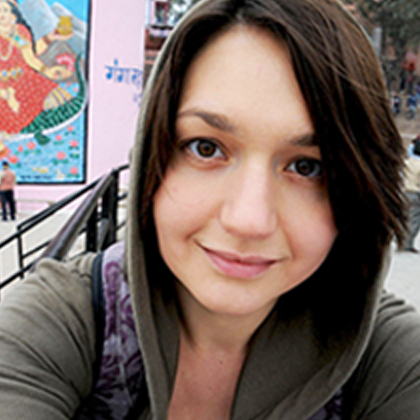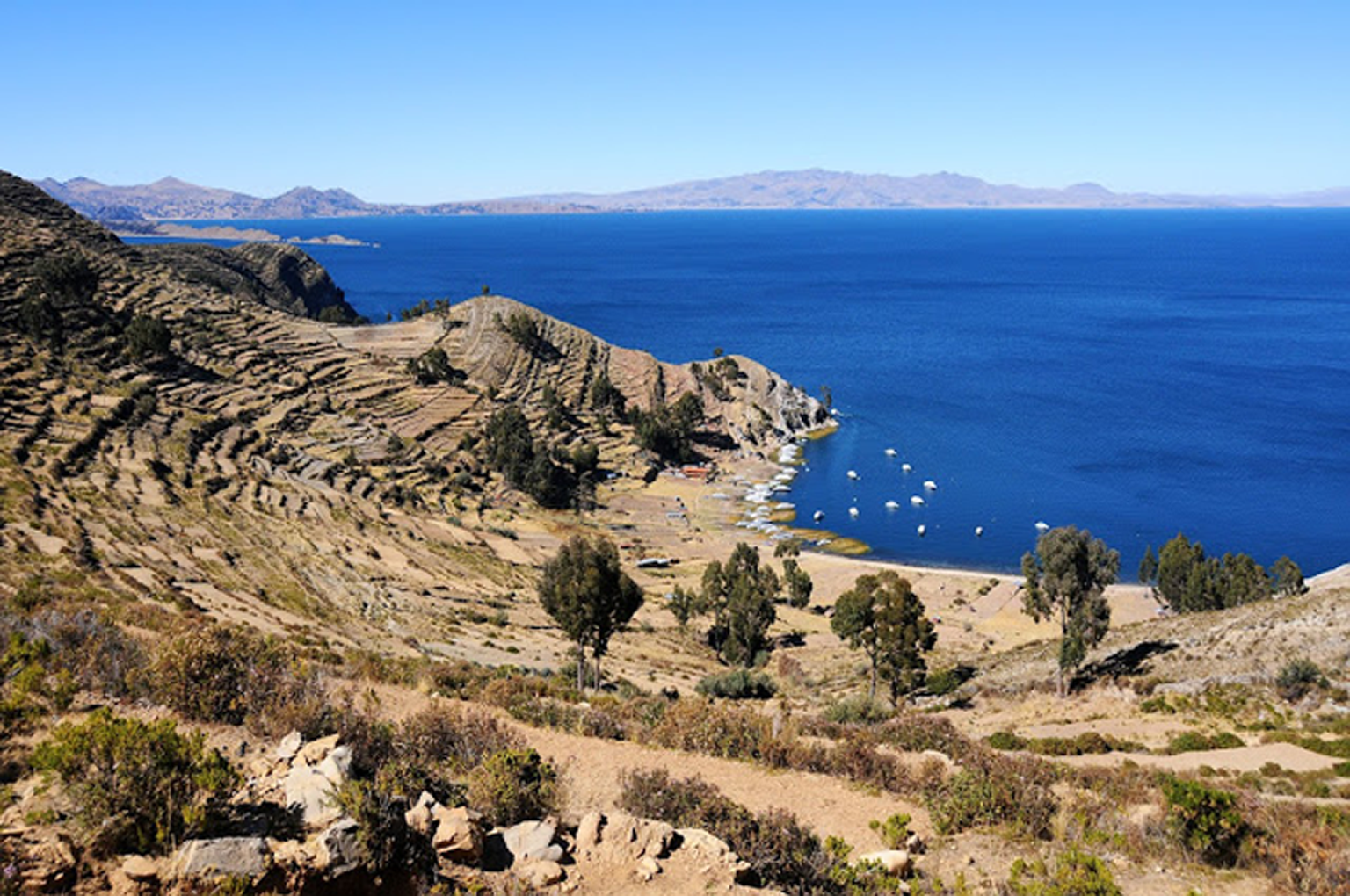- Posted by:
- anjci
- Under:
- Eurovision
“Judges voted for Australia. People voted for Russia. And Ukraine won”.
This statement best reflected the mixed media and public reactions to the result of the Grand Final of the Eurovision Song Contest 2016. Hotly tipped for victory, Russia’s Sergey Lazarev came first in the public televote, but only managed enough jury votes to come third overall. Australia’s Dami Im, on the other hand, was a clear juries’ favourite but scored modestly among Europe’s voting public, finishing second. This is where Ukraine’s Jamala came in: ranking as the second choice of both the juries and the public, she overcame the rest of the participants to be crowned as the winner of Europe’s most popular (and most kitsch) music show ever.
This year marked a major change in the voting system of the contest. Previously, each country would award a combined set of its top 10 points, based 50/50 on the public televote and the opinion of a jury composed of several individuals believed to be music industry professionals. There were some special cases, too: for example, San Marino, a micro state that relies on the Italian telephone system and has no capacity to isolate votes to its own borders; the country has therefore always relied on jury voting.
However, 2016 saw a shift towards a mandatory separation of each country’s national jury votes and the public televote. Under this system, every country awarded two sets of top 10 points, with the intention of spreading votes across a broader number of participating countries. Each country’s jury, made up of five anonymous individuals, ranked the participants to come up with the overall jury vote. Unlike in the previous years, when each participating country would announce its three top scorers – the process taking a substantial amount of time that was nevertheless seen as traditional to Eurovision – this year the national presenters only announced their jury’s top choice. The televote was in the meantime calculated. The Eurovision hosts then announced each participant’s total televote score from all voting countries, starting from the bottom, which was added to the juries’ scores, producing an overall final result.
While differing little from its predecessor, the new system vividly highlighted the differences between the juries’ and the public’s opinions and instantly earned criticism. Besides the obvious lack of jury sympathy towards the public’s top pick – Russia – several other performers saw their results differ widely across the two scoring groups. Poland received close to no jury points at all, but came a whopping third in the televote – overall finishing eighth. In reverse, Israel and Belgium were both favoured widely by juries but scored disproportionately less with the public. Add to this the controversial lack of transparency over which five “national experts” exactly took into their hands the deciding of half of their countries’ votes, and one can understand the generally sour public sentiment towards the announcement of the scores this year.
Sweden: perfect host
This year’s contest was the sixth ever to be hosted in Sweden in Eurovision’s 61-year history, following Måns Zelmerlöw’s last year’s Eurovision victory in Vienna with “Heroes“. Sweden has always been highly successful in Eurovision and is generally viewed as the most triumphant performing country of the 21st century, having produced nine top 5 results and two victories. Sweden only lacks one victory to match the all-time record of Eurovision’s current top winner, Ireland.
Unlike with the new voting system, the popular opinion was far less divided over the quality of this year’s show. Masterfully presented by Måns Zelmerlöw and Petra Mede, Sweden’s other spectacularly popular TV persona, Eurovision reached a new standard of hosting which any of the successor countries will find hard to match. Just one highlight included Måns and Petra performing a musical-style duet in the second semi-final, where the hosts explained, in a few cheerful lyrics, the very concept of Eurovision. That itself deserved the famous “douze-pointe” even more than some of the participants.
The 2016 contest was also the first one to be broadcasted live in the United States, perhaps answering the prayers of my several good US friends who are major fans of Eurovision. Justin Timberlake performed two guest tracks in the contest’s interval and became the first non-competing artist ever to grace Eurovision with his presence. Besides Europe and the US, the contest was also shown live in China (whoever there was awake), Kazakhstan, Australia and New Zealand, thus truly gaining international scale.
Some highlights
Besides the obvious political overload, this year’s contest certainly did not disappoint. If there is such thing as quality in Eurovision, then we were on to much higher quality in Stockholm compared to previous years. There were several serious candidates for the top votes, and a number of countries threw their maximum resources to make their performances memorable.
In line with the tradition, I would like to make several awards to songs in random categories. My worst on-stage costume award goes to Germany, whose 18-year-old Jamie-Lee impersonated a Japanese doll in the best traditions of decora-kei style. Unbelievably, her performance of “Ghost” made Bjork look like a perfectly normal person. Sadly, Eurovision is a singing, not a dressing up, contest.
My worst language choice award goes to Austria, who somehow chose to sing in… French. Now, it is not the first time for a participating country to choose a seemingly unrelated language to perform in: we all remember Iceland partially singing in French in 2010 and Latvia shockingly performing entirely in Italian in 2007. Frankly, multiple countries choosing to perform in rather primitive English over their national languages this year could have challenged Austria to this title. 21 of 26 songs in the Grand Final were performed entirely in English, while four more mixed English with another language. Austria could easily have won accolades for being the only country in the final to stick to one non-English language (even if singing for the wrong country), but no such luck: its “Loin d’Ici” was simply too annoyingly repetitive.
The night’s worst on-stage dance award goes to Lithuania, whose Donatas Montvydas (aka Donny Montell) made Mick Jagger look beautifully coordinated in his performance of “I’ve Been Waiting for This Night“. The singer last represented Lithuania in the 2012 Eurovision, and has visibly grown up since: his introduction video featured him posing in front of the Trakai Castle with a woman and a child, who, the presenters insisted, were his actual wife and daughter, not actors.
This year’s best excuse for absence is shared by Romania and Turkey. The former was famously disqualified by the European Broadcasting Union (EBU) 17 days before the contest due to non-payment by Romania of almost EUR 14 million of debts dating back to 2007. It is not clear when the country will be able to participate again. Turkey, on the other hand, has been on and off about Eurovision since its last participation in 2012, citing dissatisfaction with the rules, among other reasons, to justify its refusal to return to the contest. However, Turkey “sort of” participated this year, when its veteran star Serhat competed on behalf of San Marino, sadly failing to make it past the semi-finals and possibly producing the contest’s most uncomfortably bad performance.
Onto more cheerful things, my best outfit award certainly goes to Poland’s Michal Szpak. The singer only seemed to miss a parrot on his shoulder as he impersonated Captain Morgan in his long red uniform coat emblazoned with fully blown epaulettes. Some viewers have drawn parallels between the singer and a famous American parodist, Weird Al Jankovic – and I can certainly see where they are coming from.
The night’s best lyric is awarded to Bulgaria’s Poli Genova who proclaimed that “if love was a crime, then we would be criminals“, leaving it to the audience to make the inevitable conclusions by themselves. Given the singer’s preference for kitsch reflective clothing strips, it is only lucky that fashion was not a crime. Bulgaria scored its best ever Eurovision result in 2016, ranking fourth and receiving broadly similar acclaim from the public and the jury. I am also forced to award Bulgaria with the best on-stage dance move this year – look out for those catchy knee moves in Varna this summer.
Other notable moments of the night included the fifth ever Eurovision singer to perform pregnant: Ira Losco of Malta, who was also among the bookies’ favourites to win. Having previously scored second for Malta in Eurovision 2002 in Tallinn, she ended up ranking 12th in 2016 with her very topically titled “Walk on Water“. We know we were all wishing for her not to have to walk on water before her actual due date.
The controversy
Many of this year’s Eurovision entries featured dreamy titles and lyrics. From Azerbaijan’s “Miracle” to Greece’s “Utopian Land“, from Moldova’s “Falling Stars” to Albania’s “Fairytale“, from Israel’s “Made of Stars” to Georgia’s “Midnight Glow“, we were bracing ourselves for the classic happy-clappy, fetch-my-unicorn show that is the Eurovision. On that backdrop, Ukraine’s victory with a dark, self-reflecting “1944” came not only as a surprise but also visibly outside the usual Eurovision format.
Several people have asked me how Ukraine’s obviously politically inspired entry was allowed to participate in a contest that does not tire of emphasising its detachment from politics: indeed, in the past, other performers have been disqualified for attempting to introduce current politics into their lyrics. The answer here lies in the recency of the events in question. Jamala’s “1944” was, according to the singer, covering the historical events of post-war Europe in the 1940s when thousands of Crimean Tatars were sent into exile by the then Soviet leader, Joseph Stalin. Historical political events like that are allowed in Eurovision; never mind that, after a good night’s sleep following her victory, Jamala woke up to realise that the song represented much more recent events in Crimea, too.
I myself woke up to widespread disappointment felt by Eurovision viewers across the world at this year’s result. The majority have blamed the newly introduced voting system which, albeit different only in the presentation from the previous format, has failed to win hearts. Many of us hope it is not here to stay. Whoever remembers the ephemeral 2010 format change when the viewers were allowed to vote during the entire duration of Eurovision instead of the 15-minute time frame? It proved unpopular and was scrapped shortly after.
In any event, we are now left to look forward to next year’s Eurovision Song Contest in Ukraine – and who knows which new participants we will have there following both China’s and Kazakhstan’s recent interest in joining the EBU. With Australia now an active member, very little can surprise an old Eurovision fan. It is clear though that the contest is growing to be a true international event. Stay tuned to find out!












Giannina says:
August 9, 2018 at 8:53 pm
I don’t know why my favorite are always Sweden… In my playlist for that year I have Frans with If I were sorry!
anjci says:
August 10, 2018 at 10:57 am
Sweden consistently puts forward strong contenders, that is why : ) and has a great music tradition. I LOVED Frans’ entry, too – I feel it had a real chance but didn’t do as well as hoped. My TOP favourite from 2016 though is Bulgaria’s “If Love Was a Crime” – it is a Eurovision classic! Shame that Russia did not win, they did put a massive effort into what was a flawless performance.
2016 Newsletter - Anjci All Over says:
August 10, 2017 at 4:51 pm
[…] And even later in May, I wrote my annual summary on the Eurovision Song Contest (Ukraine won: read it here), had it reprinted by my employer’s weekly paper and almost caused a political crisis among […]
Comments are closed.